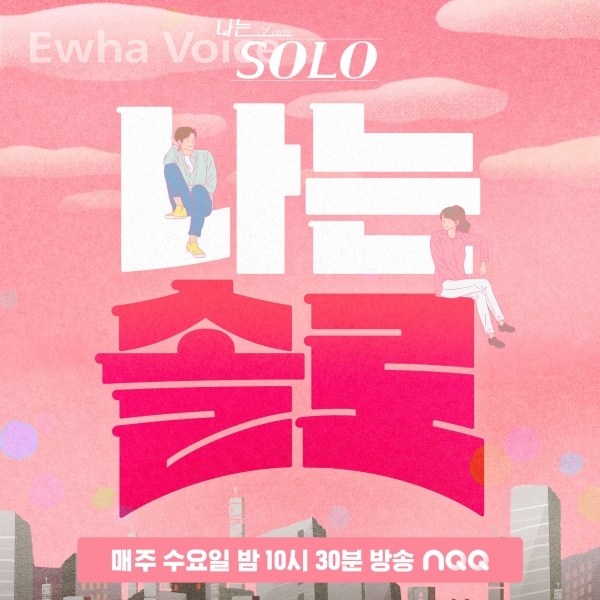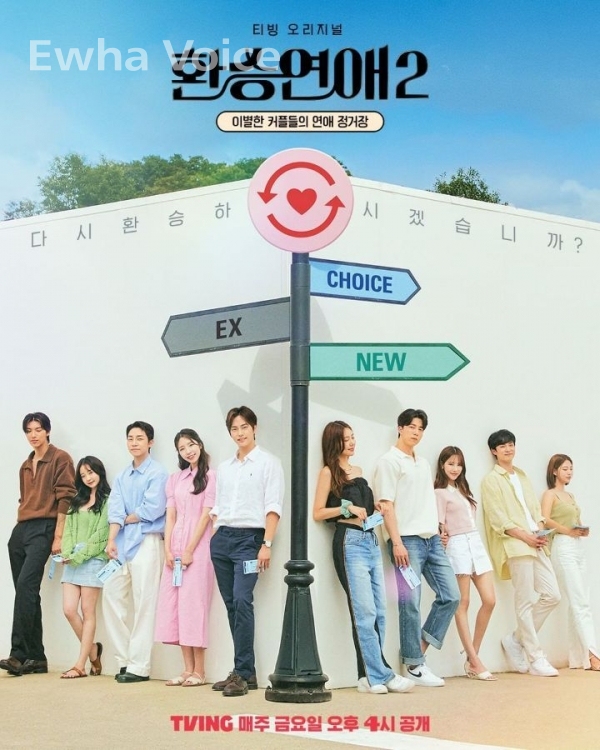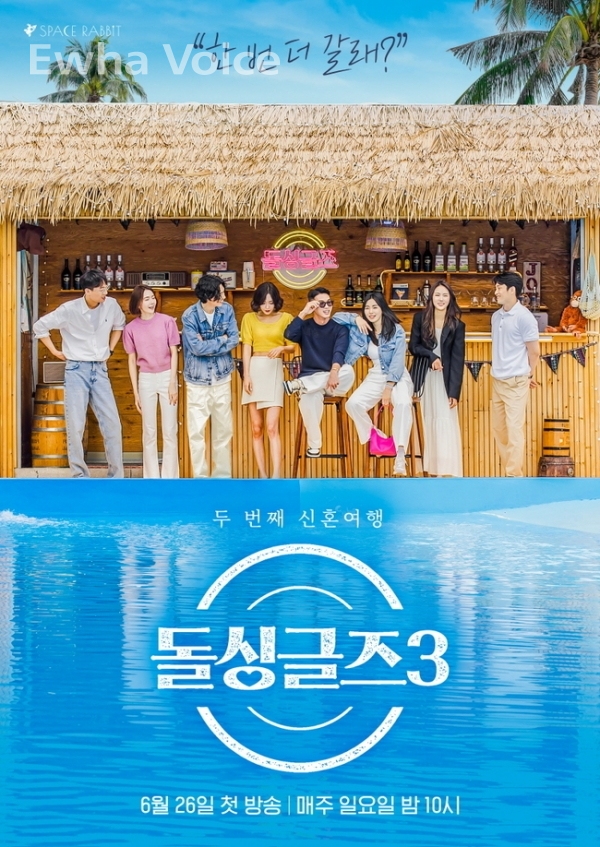


With more than 25 dating shows being broadcasted or to be broadcasted in 2022, these programs have gained massive popularity from all ages in current South Korea.
“I am SOLO” from Seoul Broadcasting System (SBS) and Entertainment DNA (ENA) and “Love After Divorce” from Maeil Broadcasting Network (MBN) and ENA have attracted the middle- aged class, both reaching an average viewer rating in the 5 percent range. “EXchange 2” from tvN’s OTTplatform TVING, ranking first place on TVING for six consecutive weeks, and “Change Days” from kakaoTV, ranking in Netflix’s top range not only in Korea but also in Hong Kong and Taiwan, have mainly attracted the young generation.
This trend in entertainment is not solely apparent within South Korea. The British “Love Island” has won big success producing 22 international versions, and the Netflix shows “Too Hot to Handle” and “Love is Blind” have received various reviews worldwide.
Although some experts show concerns toward the overflow of the repetitive production trend, it goes without a doubt that dating shows are the golden geese in the entertainment industry.
Kim Suk, head of Culture Media Lab (CMLAB), a company researching in the field of development in policy for the promotion of the media content industry, shared her thoughts on the status quo of dating shows. Kim personally shows interest towards media content, continuously researching in the field of how the industry environment is changing within the media ecosystem.
Kim explained the trend of dating shows gaining rapid popularity in terms of consumers and the storytelling structure.
“For consumers, reality dating shows not only provide content of the originally popular ‘romance’ genre but also ‘true reality’ as the plots extend to real life,” Kim described. “In terms of the storytelling structure, these shows provide a new type of character, as ordinary people are ‘original’ compared to celebrities.”
Jung Min-joo, a Humanities major at Seoul National University, shared reasons why she enjoys watching reality dating shows.
“As a highschooler, it was not easy to make time or empathize with the cast of dating shows, as I did not have enough dating experience,” Jung said. “However, becoming a college student and experiencing a larger diversity of people in the society, I naturally became interested in watching other couples date and break up, and getting to learn the different types of characteristics that could exist in real life through the cast members on these shows.”
A sophomore at University of California, Los Angeles (UCLA) who wished to remain anonymous expressed similar thoughts on why people tend to watch reality dating shows.
“The formats that producers choose are always like a ‘social experiment,’” she said. “It is interesting as the situations and episodes aired on dating shows are not likely to happen in real life, though not giving a ‘staged environment’ feeling at the same time. I believe this helps viewers immerse into the emotions of the cast.”
In a media economic point of view, the media content industry always has high uncertainty, as it takes a long time to plan, produce, and air a program. Moreover, simply planning a program does not always lead to its production or organization, whereas there is always a large amount of manpower and expense devoted in the process, also known as “sunk cost.”
Kim analyzed the trend in terms of media economics, describing reasons why broadcasting and production companies continuously produce reality dating shows.
“Following the tendency of success in the leading market always lowers the risk of failure,” Kim remarked. “In other words, it can save time and money and simultaneously produce programs that attract consumers.”
Kim emphasized the fact that reality dating shows satisfy broadcasting systems as different stories depending on the diverse cast can gather viewers of all ages, help production companies lower costs by saving time and money, and benefit OTT platforms with loosened deliberation systems that can expand user age groups.
Kim also pointed out the shortcomings of reality dating shows, emphasizing the difficulties in risk management.
“There are also concerns for extreme views on love forming in the younger generation, as well as its vulnerability to vicious comments or judgment towards the ordinary cast,”Kim said. “One example can be the number of suicides committed by the cast of ‘Love Island,’ – some had difficulties distinguishing between themedia content and reality, and this led to social problems.”
When asked about the shortcomings of reality dating shows, Jung also depicted the invasion of the personal lives of the ordinary people cast.
“As the programs are aired on television or OTT platforms, some people are oblivious of the fact that the cast are ordinary people, just like us,” Jung stated. “The cast may receive vicious comments based on undue concerns, but it is difficult for the producers to stop this as provocative content tends to lead to higher ratings and popularity.”
The interviewee who wished to remain anonymous showed concerns towards the changes in social perception due to trends in the ordinary cast.
“Producers tend to look for good- looking people with attractive academic backgrounds or careers,” she exemplified. “I think this may lead the society again towards the now-retreating trend of lookism or academic elitism.”
“We are currently living in the deluge of media and content, which can either be a chance of development or crisis,” Kim emphasized. “Contents are products that show the economics of taste, and now it is the era where we all need to be prepared for rational consumption of content.”

